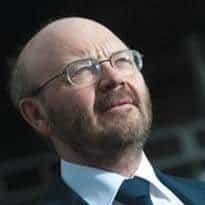The new chair of UKCHIP is urging the various bodies involved in representing NHS IT and information staff to work together to strengthen informatics professionalism.
Gwyn Thomas, who once led the NHS Information Authority and who retired as chief information officer of the Welsh Assembly Government in August, said the current “landscape” of professional bodies was “confusing” and more co-ordination is needed.
Speaking to EHI, Dr Thomas said: “I have found that as my role has changed over my career, I have been a member of a number of bodies – UKCHIP, Assist (the Association of ICT Professionals in Health and Social Care), BCS Health, and Socitm (the Society of Information Technology Management, which focuses on local government).
“That is quite a confusing landscape for potential members. So I am saying we need to work together to create a platform to take professionalism forward.”
Dr Thomas added that he was also keen to include the Information and Records Management Society, whose work is “highly topical” given the renewed interest in record keeping from policy makers and regulators.
Dr Thomas was chief executive of the NHSIA, the organisation set up to deliver the 1998 IT strategy, ‘Information for Health’, and which was replaced by NHS Connecting for Health in 2004.
While he held this role, he helped to found UKCHIP, which runs online registration and continuing professional development tools and support. Dr Thomas said that, at the time, he felt there was a need for “registration and regulation” and this “has not gone away.”
Indeed, he argued that “it has become more pressing” with the second of Robert Francis QC’s reviews into the scandal at Mid Staffordshire NHS Foundation Trust, and the government’s subsequent decisions to ask NHS England medical director Sir Bruce Keogh and US quality expert Professor Don Berwick to investigate hospitals with high death-rates and the NHS’ safety culture.
“One of their findings was that we need to rediscover professionalism, and that applies to health informatics as much as other professions,” he argued. “This is an idea whose time has come.”
Dr Thomas argued that if all those working in NHS IT and information joined a relevant professional body, and those organisations worked together, there would a stronger platform to make the case for strengthening informatics across the NHS.
“This is all about getting an understanding of how important information is to an organisation. It has been the cry of informaticians over the years that trust information is as important as money – in fact, it is more important, because without information you do not know how to spend the money.
“It is also about making this an attractive career for people. Lots of us involved in it at the moment just fell into it, but we need to attract the best and the brightest – and then develop those people.
“And we need to develop the knowledge base. The foundation of any profession is its knowledge base, and we need to work with universities and others to develop that.”
Dr Thomas argued there is “a lot of goodwill” towards these ideas, but “we need to move faster, so people can see we are making a difference.”
In addition to his UKCHIP post, Dr Thomas has also accepted a professorship at Swansea University, where he is redesigning the masters degree in health informatics, with a focus on leadership, and become chair of Health Data Insight, a community interest information broker.

